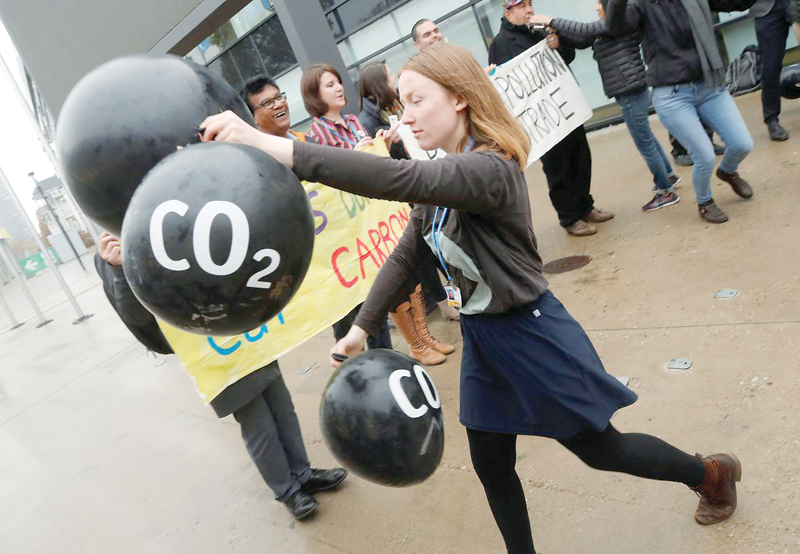

Wilbur Ross has opened a new theatre in the trade war. The US commerce secretary on Sunday told the Financial Times that the Trump administration will “react” if the European Union’s plan to impose the same carbon tax on imports as member states’ companies will have to pay “is in essence protectionist”.
It’s not the first time the White House has turned up to wreck the global push to address rising temperatures, and this latest episode shows how hard it can be to devise local or regional attempts to solve the worldwide problem of climate change. But there is a way the EU can help marginalize the White House: allying with activist global investors.
In some ways, investors and the government are stuck in a chicken-and-egg situation. Initiatives like a carbon tax are crucial to combatting global warming. Trouble is, the long-term benefits of such changes can too often seem burdensome to companies in the short term.
What’s often missing are positive incentives for them to adapt to climate risk. Investors, for example, may be willing to put money to work in certain projects – such as new carbon-lite technology for the steel and cement industries – if there’s a greater chance of success, and political support.
For their part, governments may be more inclined to carve out tax breaks and other climate-friendly policies if they know private capital is more likely to flow in. And it doesn’t have to just be in their own jurisdiction. The EU could, for example, investigate funnelling some of the income from taxing carbon-heavy imports back into climate projects in the countries of origin – with investors providing advice.
The good news is that money managers who are determined to make change have more power than ever. Allianz, CalPERS and UBS are among the 370-odd members of Climate Action 100+ which now shepherd $41 trillion of assets between them after the world’s largest money manager, BlackRock, joined earlier this month. The group has already been pushing some of the largest greenhouse-gas emitters, like BP and Glencore, to cap their pollution and outline how they’ll deal with climate risk.
One of its number, UK insurer Aviva, is a lead investor on separate campaign to cajole McDonald’s, Domino’s Pizza and four other fast-food chains to set “aggressive” targets on emissions and water use. That group now has the support of those managing almost $12 trillion in assets, it said on Monday, almost doubling since its inception a year ago.
If such groups and the European Union can find ways to work together, it would make for a powerful, positive and lucrative combination – and help push climate sceptics like the Trump administration to the sidelines. — Reuters
Oman Observer is now on the WhatsApp channel. Click here



